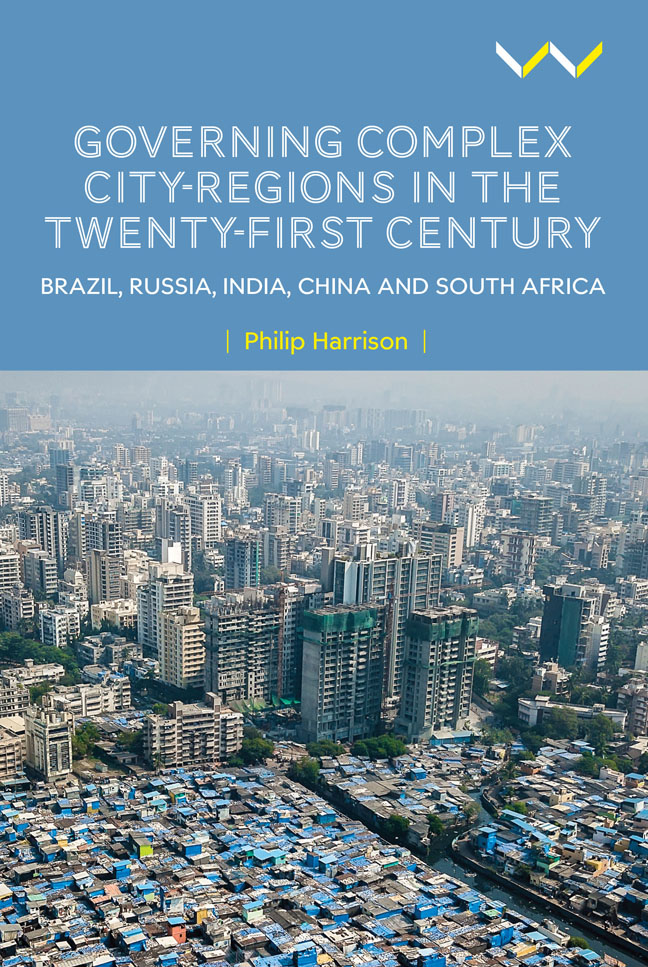 Governing Complex City-Regions in the Twenty-First Century
Governing Complex City-Regions in the Twenty-First Century Published online by Cambridge University Press: 02 March 2024
The dilemma of collective action
Urban governance at any scale is complicated, but large city-regions are the ‘talking pigs’ – the cases in extremis. Because of their size, dynamism and indefinite boundaries, they are a governmental context of hyper-complexity.
Modern forms of governance are constructed within demarcated territories, layered from the national to local, but this arrangement is increasingly tested by the ongoing expansion of urban footprints across jurisdictions. To address the overspill, the boundaries within which governments operate must be continually redrawn or other mechanisms of joint action created. This is not only a matter of horizontal coordination, as actors across all scales of government are engaged at the local and regional levels. Even within a single jurisdiction, there is a complex mix of governmental, private and civic actors with different interests and modes actively engaged in governance processes. Michael Neuman (2007, 319) describes the coalescence of government structures into ‘multi-scalar large institutional networks’. Paul Aligica and Filippo Sabetti (2014, 9) refer similarly to ‘a complex social reality of multiple decision centers and multi-layered, overlapping jurisdictions’.
While governing at the scale of a city-region is technically complicated, the biggest challenges are political and institutional, and personal motivations and relationships. Planning theorist Patsy Healey (2005, 147) calls the city-region a context of ‘relational complexity’, while Willem Salet et al. (2003, 377), in their comparative study of city-regions across Europe, define city-region governance as the task of ‘organizing connectivity’.
Public choice theorists Elinor Ostromand and Richard Feiock have placed collective action dilemmas at the centre of their analysis, which I find to be a useful launching pad for my own enquiries (for example, Ostrom 1990, 2009; Feiock 2009, 2013). They start with an analysis of how institutional fragmentation produces challenges in managing externalities, spillovers and common property resources. To provide public benefits and prevent environmental destruction, social actors must agree to collaborate, and this happens when the individually calculated benefits of working together are greater than the costs and risks of doing so. The city-region presents an acute dilemma of collective action, as the group size is large, societies are heterogeneous, and levels of trust and reciprocity in these competitively charged environments are often low. There are also many forms of territorial jealousy, with local actors adopting positions of self-protection and self-promotion.
To save this book to your Kindle, first ensure [email protected] is added to your Approved Personal Document E-mail List under your Personal Document Settings on the Manage Your Content and Devices page of your Amazon account. Then enter the ‘name’ part of your Kindle email address below. Find out more about saving to your Kindle.
Note you can select to save to either the @free.kindle.com or @kindle.com variations. ‘@free.kindle.com’ emails are free but can only be saved to your device when it is connected to wi-fi. ‘@kindle.com’ emails can be delivered even when you are not connected to wi-fi, but note that service fees apply.
Find out more about the Kindle Personal Document Service.
To save content items to your account, please confirm that you agree to abide by our usage policies. If this is the first time you use this feature, you will be asked to authorise Cambridge Core to connect with your account. Find out more about saving content to Dropbox.
To save content items to your account, please confirm that you agree to abide by our usage policies. If this is the first time you use this feature, you will be asked to authorise Cambridge Core to connect with your account. Find out more about saving content to Google Drive.